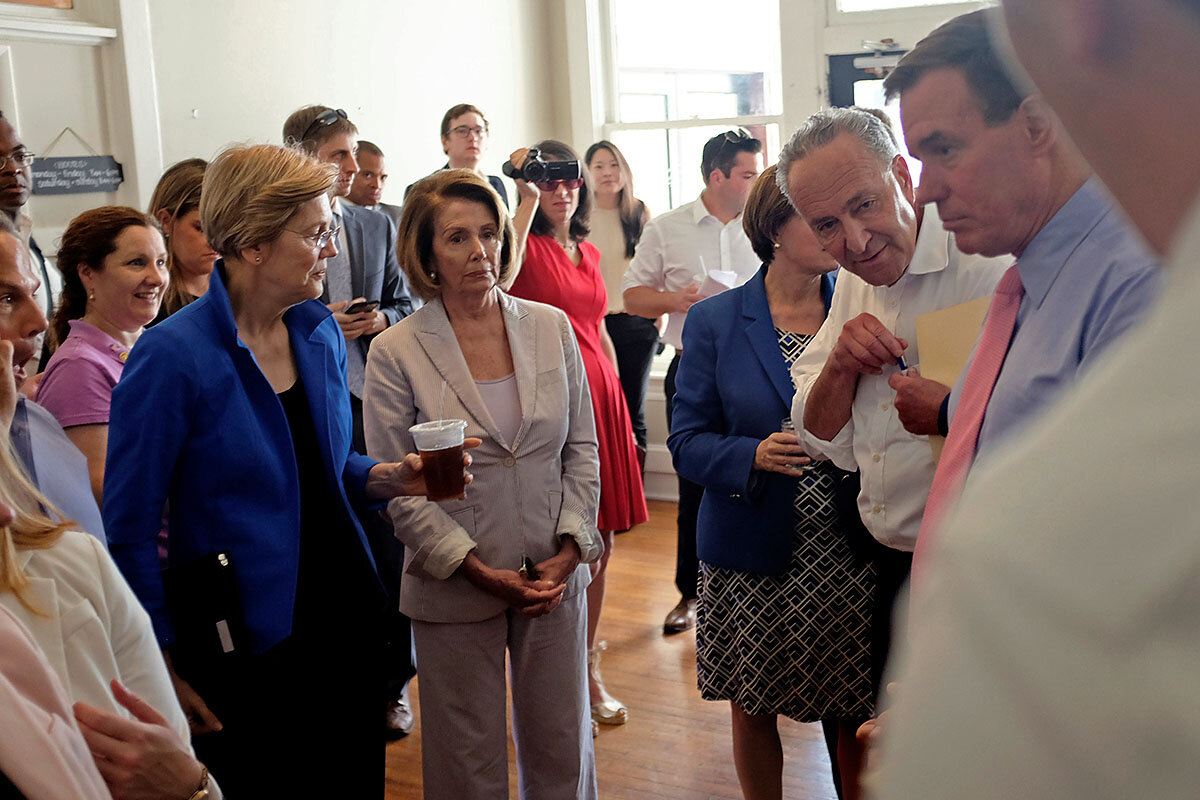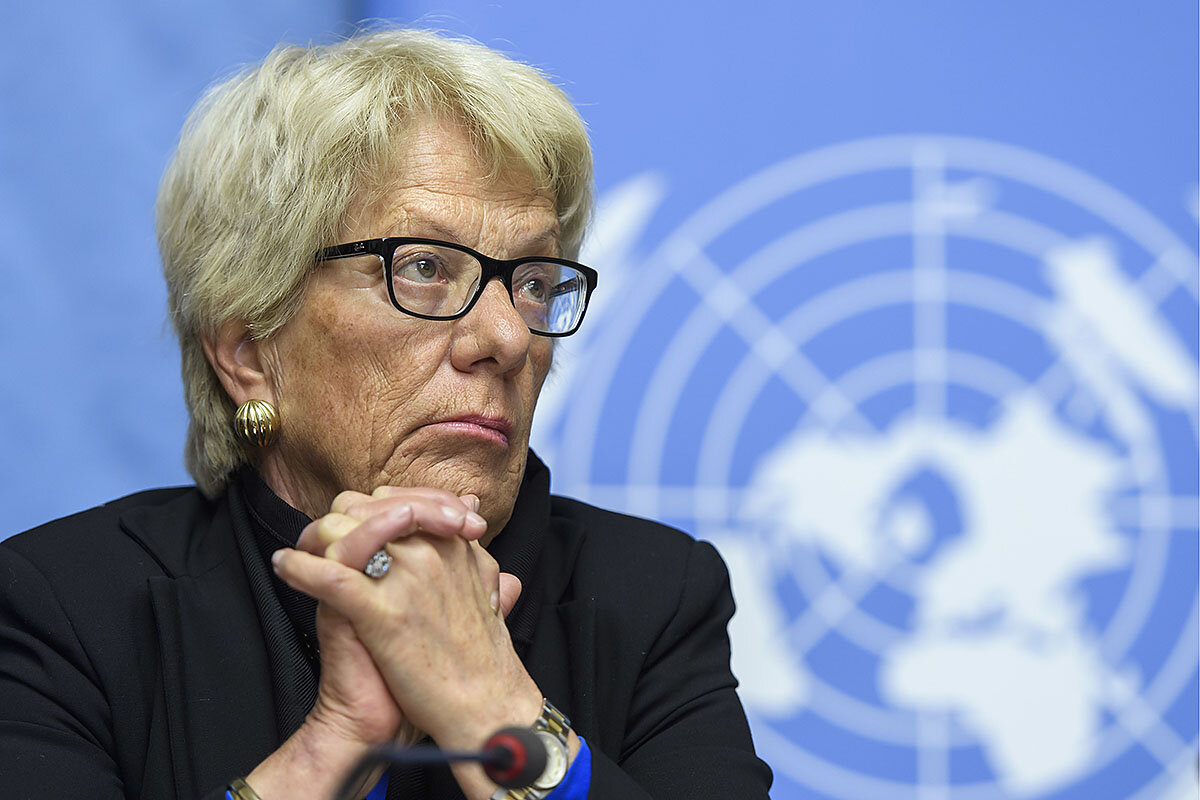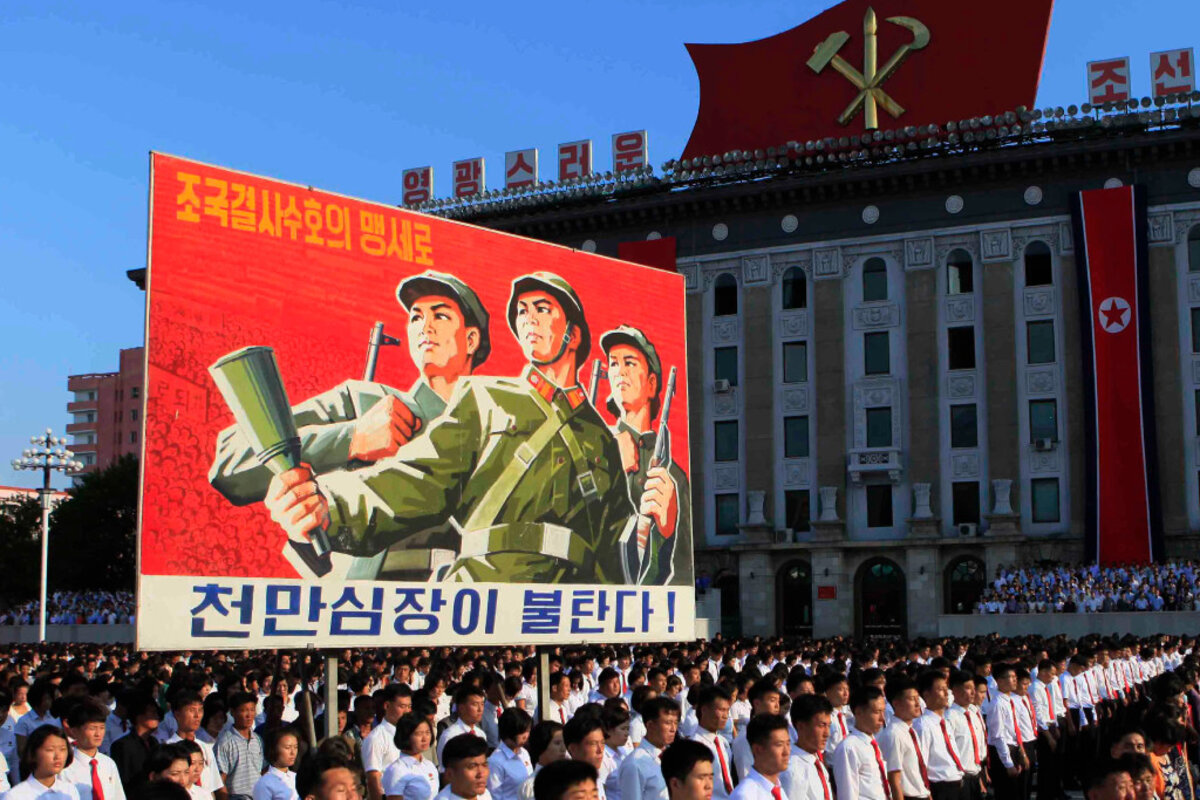As North Korea’s capability for nuclear war has grown, so too has its war of words with the United States. The rhetorical warfare peaked this week with President Trump promising “fire and fury” if North Korea makes more threats. The North then said it was weighing a strike on Guam, a US territory in the western Pacific Ocean.
Amid the nuclear brinkmanship and the tit-for-tat diktats, it is important to remember where North Korea is at its weakest and most vulnerable. Its missiles may be traveling farther and its estimated 60 atomic bombs may be missile-ready, as US intelligence claims. Yet its military strength cannot cover up the fact that the regime of Kim Jong-un is living a lie, one that it will not admit and that could be its undoing.
For nearly seven decades, North Korea has claimed to its people that it is self-sufficient in its economy and self-reliant in defense. This ideology of “juche” was false from the start. When Kim Il-sung, the grandfather of the current leader and the nation’s founder, wanted to invade South Korea in 1950, he hardly did it on his own. He asked permission from the Soviet Union’s Joseph Stalin. And then he relied on military assistance from China’s Mao Zedong.
The point was made again in the mid-1990s when a great famine struck North Korea – a result of its false notion of self-sufficiency in agriculture. It was forced to accept emergency food aid.
The reliance on others continues to this day. Some 60,000 to 80,000 North Koreans have been sent abroad to earn hard currency. And despite the latest economic sanctions ordered Aug. 5 by the United Nations Security Council, the country still relies on China for oil and as an export market for North Korea's fishing fleet. The new sanctions will only cut its $3 billion annual export revenue by a third.
A government can survive for only so long in a contradiction between its ideals and its actions. And the truth about North Korea is that it has long needed trade, aid, and technology from other countries. Just as individuals who self-isolate come to realize their bond with humanity, North Korea must eventually admit the truth of its reliance on the international community – and along with it, the norms of peace and the necessity of constraints on nuclear weapons.
The Soviet Union came out of its myth of closed markets in 1985 under Mikhail Gorbachev’s policy of perestroika (restructuring) and glasnost (openness). It then joined the global economic system (which led to the Soviet Union’s collapse). In 1986, Vietnam’s Communist Party followed Moscow with its doi moi (rejuvenation) and embrace of markets (and later, good relations with the US).
The biggest lesson for North Korea, however, may lie in its closest ally, China.
Like the Kim family, Mao believed in self-sufficiency for China from 1950 until his death in 1976. His successor, Deng Xiaoping, realized how Mao’s ideology had left China behind other countries and was the cause of mass starvation. In addition, tens of thousands of Chinese were fleeing to Hong Kong.
Deng’s trip to France in 1975 transformed his thinking. “The more we see, the more we realize how backward we are,” he said. By 1979, China’s Communist Party opened itself to reform and cooperating with other countries – although not enough to jeopardize the party’s power. By 1992, China even opened relations with South Korea for the sake of business.
Mao’s promise of self-sufficiency is now largely broken. And despite recent threats to its neighbors’ territories, China mostly operates within international norms. This transition, as well as China’s continuing aid to North Korea, is why Beijing is the focus of the US and others in tightening sanctions on North Korea.
The ultimate goal is to awaken the Kim regime to the same realization of many other countries: that a country cannot live a lie. North Korea must admit it is no island. It already relies on others and can rely even more on them if it only contains or eliminates its nuclear weapons.
 Amelia Newcomb
Amelia Newcomb










